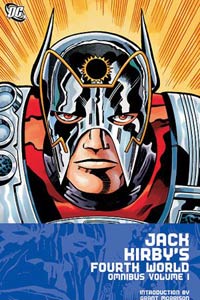Ken Chen, “The Mansions of the Moon”

The crescent fattened, making content the anorexic moon.
Escapes the smog and eats the road, the moon winds up
our time and chews the road back into itself. The moon is
tattooed by black pattern of branch. The moon is shy
and hides like two people behind a silence and a pretense
of no emotion. It understands what it is like
to have one’s heart carved away in phases.
This is the price of being
other than lifeless.
An eyelid goes gibbous with water.
For a frozen moment, the moon
has sunk into a sphere, the perfect solid of memory—
all thoughts equidistant from the soul,
the thought-light focusing on
two humans together, growing alone.
Juvenilia was the winner of last year’s Yale Younger Poets competition, the oldest annual literary prize in the United States. It’s the debut collection from Ken Chen, the executive director of the Asian American Writers Workshop; he recently did a batch of readings around the New York City area, and he’ll be doing another on Saturday, May 15, at the New York Botanical Garden, sponsored by the Poetry Society of America.
4 May 2010 | poetry |
Read This: Jack Kirby’s Fourth World
 I was reading this essay at the Jewish Review of Books about “why there is no Jewish Narnia” earlier tonight, and at first I mentally countered that if, as Michael Weingrad claimed, “Jews do not write fantasy,” where was I supposed to shelve the Avram Davidson books? But then I figured, okay, let’s grapple with the more specific version of Weingrad’s lament, which is the lack of a Jewish epic fantasist comparable to J.R.R. Tolkien or C.S. Lewis, and the answer to that came to me in an instant: Jack Kirby.
I was reading this essay at the Jewish Review of Books about “why there is no Jewish Narnia” earlier tonight, and at first I mentally countered that if, as Michael Weingrad claimed, “Jews do not write fantasy,” where was I supposed to shelve the Avram Davidson books? But then I figured, okay, let’s grapple with the more specific version of Weingrad’s lament, which is the lack of a Jewish epic fantasist comparable to J.R.R. Tolkien or C.S. Lewis, and the answer to that came to me in an instant: Jack Kirby.
I confess that I haven’t read the entirety of DC’s multi-volume hardcover collection of Kirby’s “Fourth World” stories, which was spread out over four separate comics that “the King” came to the company to write and draw in 1970—creating The New Gods, The Forever People, and Mister Miracle from scratch as well as taking over Superman’s Pal, Jimmy Olsen—but only because I didn’t have the $200 to spare when they were coming out. I did, however, read the first volume, and I can assure you, it’s seriously mindblowing. Yes, it’s not explicitly Jewish, but it’s not like Aslan is explicitly Christian, either.
Not to mention that the Fourth World’s influence on the two generations of comic book creators who’ve followed in its wake has been enormous; people with a more rigorous grounding in the history of DC and Marvel could make a richly detailed, persuasive argument about the majority of “epic” series over the last quarter-century being a series of attempts to grapple, either directly or indirectly, with the precedent that Kirby established here. (If you’re not dealing point-blank with the New Gods, as Grant Morrison was in Final Crisis, you’re working up a story that “threatens” to “revolutionize” your entire “continuity,” like Mark Millar on Civil War or Brian Bendis on Secret Invasion… which turned out to be two chapters in an even larger saga). And this is just the most blatant example of how Kirby would build an epic world from scratch; when DC pulled the plug, Kirby returned to Marvel and started up a new series called The Eternals…
Anyway, that’s my answer to the question of why there isn’t a Jewish Narnia: There is, and it’s called The Fourth World.
3 May 2010 | read this |

 Our Endless and Proper Work is my new book with Belt Publishing about starting (and sticking to) a productive writing practice.
Our Endless and Proper Work is my new book with Belt Publishing about starting (and sticking to) a productive writing practice. 
